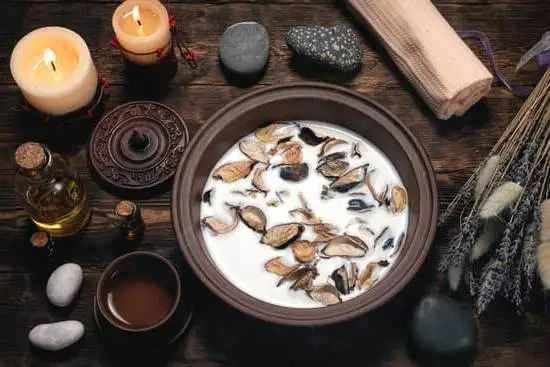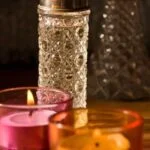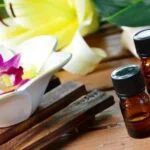Do aromatherapy really help you sleep? Aromatherapy is the practice of using natural oils and scents to promote relaxation, improve mood, and enhance overall well-being.
In this article, we will explore the concept of using scents to promote relaxation and sleep, delving into its history, scientific evidence, popular essential oils for sleep, aromatherapy techniques, personal experiences, and safety concerns. Whether you are struggling with insomnia or simply want to improve your sleep quality, understanding the potential benefits of aromatherapy can offer a natural solution to soothe your mind and body for a restful night’s sleep.
Aromatherapy has been used for centuries as a means of improving sleep and overall well-being. Originating from traditional practices and cultural beliefs surrounding the use of scents for relaxation and sleep, aromatherapy has continued to gain popularity as a holistic approach to addressing sleep issues.
Research studies have also supported the effectiveness of aromatherapy for sleep by examining how certain scents can impact the brain and promote relaxation. By understanding both historical practices and modern scientific evidence, individuals can gain insight into the potential benefits of using aromatherapy for improving their sleep quality.
In addition to exploring the historical and scientific aspects of aromatherapy for sleep, we will also discuss specific essential oils that are commonly used for promoting relaxation and better sleep. From the calming properties of lavender to the stress-reducing effects of bergamot oil, these essential oils have been studied extensively for their ability to improve sleep quality.
Understanding how these essential oils work can provide valuable insight into how to incorporate them into your own aromatherapy routine for optimal results in promoting restful and rejuvenating sleep.
History of Aromatherapy
Aromatherapy has a long and rich history, dating back thousands of years to ancient civilizations such as the Egyptians, Greeks, and Romans. These early cultures recognized the powerful effects that certain scents had on the body and mind, using them for various purposes including relaxation, spiritual rituals, and as natural remedies for ailments. The practice of aromatherapy has continued to evolve over time, with different cultures developing their own unique methods and uses for essential oils.
Historically, aromatherapy was also used as a form of herbal medicine in traditional Chinese medicine and Ayurvedic practices in India. In these ancient healing systems, specific scents were believed to have the ability to balance the body’s energy and promote overall well-being. The use of aromatherapy for sleep specifically can be traced back to these early civilizations and their holistic approach to health.
Cultural beliefs surrounding the use of scents for sleep have varied across different societies but share a common thread in recognizing the soothing and calming effects that certain fragrances can have on the body. From burning incense in religious ceremonies to infusing oils into bath water for relaxation, aromatherapy has been used as a natural method for promoting restful sleep throughout history.
Today, modern scientific research continues to explore and validate these traditional practices, shedding light on the effectiveness of aromatherapy for improving sleep quality.
Scientific Evidence
Numerous research studies have been conducted to determine whether aromatherapy really helps you sleep. These studies have explored the impact of various scents on the brain and how they can promote relaxation and improve sleep quality. The results have shown that certain essential oils have proven to be effective in inducing calmness and aiding in sleep.
For example, a study published in the National Library of Medicine investigated the effects of lavender essential oil on sleep quality. The findings revealed that inhaling the scent of lavender oil led to improved sleep duration, reduced insomnia, and an overall better quality of sleep for participants. Similarly, another study focused on the use of chamomile oil and its ability to promote relaxation and ease anxiety, ultimately aiding in better sleep.
The reason behind the effectiveness of aromatherapy for sleep lies in how certain scents interact with the brain. When inhaled, these essential oils stimulate the olfactory system and trigger responses in the brain’s limbic system, which is responsible for regulating emotions and influencing the nervous system. This process can lead to feelings of calmness, reduced stress, and ultimately improved sleep patterns.
| Essential Oil | Sleep Benefits |
|---|---|
| Lavender | Improved sleep duration, reduced insomnia |
| Chamomile | Promotes relaxation and eases anxiety for better sleep |
| Bergamot | Reduces anxiety and stress for improved sleep quality |
Overall, scientific evidence suggests that aromatherapy can indeed help individuals improve their sleep. These findings provide support for using essential oils as a natural approach to addressing insomnia and promoting better overall well-being.
Most Popular Essential Oils for Sleep
Aromatherapy has gained popularity as a natural and holistic approach to promoting relaxation and improving sleep quality. Essential oils are a key component of aromatherapy, and certain scents have been found to be particularly effective in inducing calmness and promoting better sleep. Here are some of the most popular essential oils for sleep:
- Lavender: Lavender essential oil is widely recognized for its soothing properties. Research studies have consistently shown that the scent of lavender can help improve sleep quality, reduce anxiety, and promote relaxation.
- Chamomile: Chamomile essential oil is derived from the flowers of the chamomile plant and is known for its calming effects. It has been traditionally used to induce calmness and ease stress, making it a popular choice for promoting better sleep.
- Bergamot: Bergamot essential oil is often used to reduce anxiety and stress, which can significantly impact sleep quality. Its citrusy aroma has been found to be effective in promoting relaxation and aiding in better sleep.
These essential oils can be used in various ways to support better sleep, from diffusing their scents in the air to applying them topically.
When using these essential oils for sleep, it’s important to consider the individual preferences and sensitivities of each person. Some may find certain scents more appealing or beneficial than others, so experimentation with different essential oils may be necessary to determine which ones work best for specific individuals.
Overall, incorporating these popular essential oils into an aromatherapy routine can offer a natural and pleasant way to promote relaxation and improve sleep quality.
Aromatherapy Techniques
When it comes to utilizing aromatherapy for improving sleep, there are various techniques that can be employed to maximize its benefits. One of the most popular methods is through the use of diffusers. These devices disperse essential oils into the air, allowing their scents to be inhaled and absorbed by the body. This method is particularly effective for creating a calming and relaxing atmosphere in the bedroom, helping individuals unwind and prepare for a restful night’s sleep.
Another common technique for using aromatherapy is through topical application. This involves applying diluted essential oils directly onto the skin, usually through massage or with the use of lotions or creams. The skin absorbs these oils, allowing their therapeutic properties to take effect. When it comes to promoting sleep, this method can be beneficial for individuals who prefer a more direct and targeted approach to experiencing the calming effects of essential oils.
In addition to diffusers and topical application, incorporating aromatherapy into nightly routines can also enhance its effectiveness in promoting sleep. For example, adding a few drops of lavender or chamomile essential oil to a warm bath before bedtime can create a soothing and tranquil environment that signals the body to relax and prepare for sleep. Overall, combining different aromatherapy techniques can offer a holistic approach to improving sleep quality naturally.
| Aromatherapy Technique | Benefits |
|---|---|
| Diffusers | Create a calming atmosphere; help individuals unwind and prepare for sleep |
| Topical Application | Directly target areas that need relaxation; allow therapeutic properties to take effect |
| Nightly Routines | Enhance effectiveness by incorporating aromatherapy into bedtime rituals; signals body to relax |
Personal Experiences
Testimonials From Aromatherapy Enthusiasts
Many individuals have reported positive experiences with using aromatherapy to improve their sleep quality. One common testimony is that of Sarah, who struggled with insomnia for years before discovering the calming effects of lavender essential oil. She found that diffusing lavender in her bedroom before bedtime helped her relax and unwind, leading to a significant improvement in her ability to fall asleep and stay asleep throughout the night.
Similarly, John, a busy professional dealing with high levels of stress, turned to bergamot essential oil after hearing about its anxiety-reducing properties. He found that applying diluted bergamot oil to his pulse points before bed not only helped him feel more relaxed, but also contributed to a noticeable decrease in nighttime restlessness and an overall improvement in his sleep patterns.
Real-Life Examples of Improved Sleep Quality
In addition to individual testimonials, there are numerous real-life examples of how specific scents have positively impacted sleep quality. For instance, a study conducted at the University of Southampton found that participants who were exposed to the scent of lavender before bedtime experienced an increase in their deep sleep stages and reported feeling more refreshed upon waking. This research supports the idea that certain aromas can indeed aid in promoting relaxation and better sleep.
Another example comes from a senior care facility where residents with sleep disturbances participated in aromatherapy sessions featuring chamomile essential oil. After a period of consistent exposure to the scent during their evening routines, many residents showed improvements in their ability to fall asleep faster and experience more restful nights. These real-life examples serve as tangible evidence of the potential benefits of aromatherapy for improving sleep quality.
Overall, personal experiences and documented cases indicate that aromatherapy can truly make a difference in helping individuals achieve better sleep. Whether it’s through diffusing essential oils or applying them topically, many people have found relief from insomnia and experienced improved rest thanks to the use of specific scents recommended for sleep promotion.
Safety Concerns and Considerations
When it comes to using aromatherapy for sleep, there are several safety concerns and considerations that individuals should be aware of. While aromatherapy can be a natural and effective way to promote relaxation and improve sleep quality, it’s important to use essential oils responsibly and with caution.
Potential Risks of Essential Oils
It is crucial to understand that essential oils are highly concentrated substances, and as such, they should be used sparingly and diluted properly. Direct skin contact with undiluted essential oils can cause irritation or allergic reactions in some individuals. Certain essential oils may also interact with medications or exacerbate existing health conditions, so it’s important to consult with a healthcare professional before incorporating aromatherapy into your sleep routine.
Safe and Responsible Aromatherapy Practices
To ensure the safe use of essential oils for sleep, it’s recommended to start by using small amounts of the oil and gradually increase as needed. Diluting essential oils with a carrier oil, such as coconut or jojoba oil, can help minimize the risk of skin irritation. Additionally, individuals should follow proper guidelines for diffusing essential oils in their home, taking care to avoid prolonged exposure in enclosed spaces.
Considerations for Sensitive Individuals
Individuals who have respiratory issues, such as asthma or allergies, should exercise caution when using aromatherapy for sleep. Certain scents may trigger symptoms or worsen existing respiratory conditions. It’s advisable to test different essential oils in small quantities before incorporating them into regular sleep rituals to determine any adverse effects.
While aromatherapy can be a beneficial tool for promoting better sleep, it’s important for individuals to educate themselves on proper usage and potential risks associated with essential oils. By approaching aromatherapy with mindfulness and precaution, individuals can enjoy the soothing benefits of scents without compromising their well-being.
Conclusion
In conclusion, the question “do aromatherapy really help you sleep?” has been explored through the lens of history, scientific evidence, and personal experiences. Aromatherapy, which involves the use of scents to promote relaxation and overall well-being, has been deeply rooted in traditional practices and cultural beliefs. Scientific studies have also provided support for the effectiveness of certain essential oils in promoting better sleep by impacting the brain and inducing a state of relaxation.
The most popular essential oils for sleep, such as lavender, chamomile, and bergamot, have been backed by research for their sleep-promoting properties. These scents can be used through various aromatherapy techniques such as diffusers or topical application to optimize their benefits. Additionally, personal testimonials have highlighted the positive impact of aromatherapy on individuals struggling with insomnia and poor sleep quality.
Despite its benefits, it is important to consider safety concerns and precautions when using essential oils for sleep. However, with responsible practices, aromatherapy can offer a natural and holistic approach to improving sleep quality for those who are seeking alternatives to traditional remedies. In closing, readers are encouraged to explore aromatherapy as a potential solution for enhancing their sleep patterns and overall well-being.
Frequently Asked Questions
How Effective Is Aromatherapy for Sleep?
Aromatherapy can be effective for sleep, as certain scents like lavender and chamomile have been shown to have calming effects on the body, promoting relaxation and better quality sleep. It can also help reduce anxiety and stress, two common causes of sleep disturbances.
What Is the Best Aromatherapy for Sleep?
The best aromatherapy for sleep varies from person to person, as individual preferences for scents differ. However, some widely recommended aromatherapy options for sleep include lavender, chamomile, bergamot, and sandalwood. These scents are known for their relaxing and calming properties, making them suitable choices for improving sleep quality.
Does Aromatherapy Have Any Real Benefits?
Aromatherapy does have real benefits, including its ability to reduce stress and anxiety, improve mood, alleviate headaches, and enhance relaxation. Many people also use aromatherapy to improve their quality of sleep. While more research is needed to fully understand the extent of its benefits, there is evidence to support the positive effects of aromatherapy on overall well-being.

Are you looking for a natural way to improve your health and wellbeing?
If so, aromatherapy may be the answer for you.





